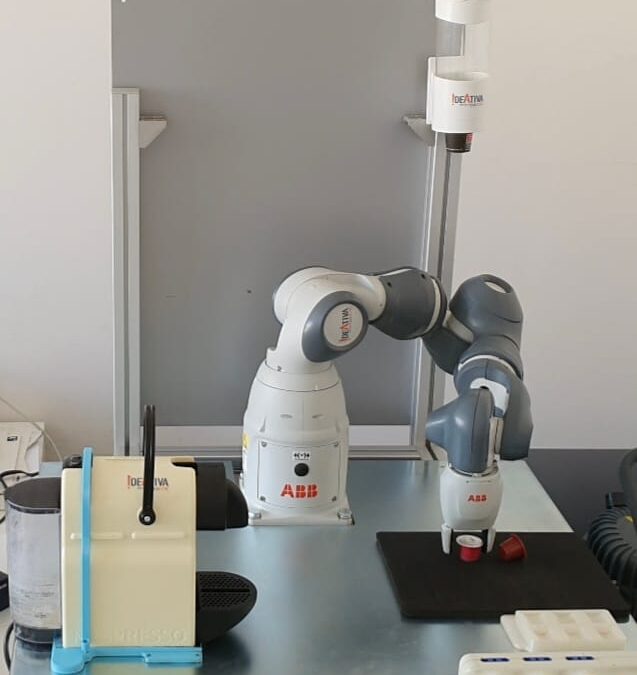The robot application in question was realised by Mirandola ITS Biomedical trainee Erik Zaccaria with thetask of making ABB’s YUMI collaborative robot a real ‘Barman’.
The main objective is therefore to offer a customised experience, allowing the operator to specify the length and quantity of coffee to be served. In the course of development, the station was optimised both structurally and functionally, with a focus on the use of innovative technologies such as 3D printing and computer vision. Initially, the process was designed in a simple way, without the use of specific supports for either capsules or cups. However, during the later stages of the project, it became apparent that the station needed to be further optimised for greater efficiency and accuracy. This led to the adoption of custom-designed, 3D-printed supports to perfectly fit the station’s requirements.
One of the crucial phases of the project was the implementation of machine vision. This was done by exploiting the sensor already integrated in Abb’s Smart Gripper, which is able to detect coffee capsules randomly arranged within an area delimited by a black mat. The use of computer vision allowed the system to dynamically adapt to variations in capsule arrangement, ensuring an accurate and reliable grip.
Conclusion
Robotic application with ABB’s YUMI collaborative robot offers advanced customised coffee preparation solution. The implementation of machine vision and the use of 3D printing demonstrate the commitment to performance optimisation and operational flexibility. The system doesn’t just offer a coffee, it dynamically adapts to changes in the working environment, representing an excellent example of how robotics technology can improve the efficiency and customisation of everyday tasks.



